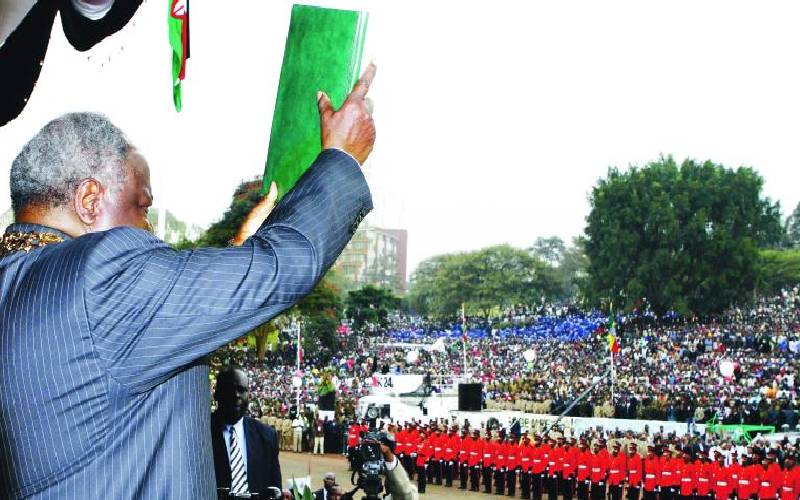
President Mwai Kibaki shows Kenyans the new constitution after its promulgation at a public function at Uhuru Park, Nairobiin 2010. [File, Standard]
Every now and then, during some political frenzy, calls are made on the need to change the Constitution. When this bug bites, the country goes into a near paralysis as leaders dance themselves lame to the tune of reggae, as has been happening recently.
The clamour to change the Constitution is seen today was experienced 45 years ago. This photograph, taken in October 1976 captures the chief architects of the Gema-leaning Change the Constitution group in a meeting in Nakuru town.
The circumstances then and now are almost similar, as one of the motivations for changing the Constitution was to midwife the Jomo Kenyatta succession. At the time, James Gichuru, Paul Ngei and Njenga Karume who were close confidants of the former president teamed up with the fiery Kihika Kimani. They publicly declared their singular mission to change the Constitution was to block Daniel Moi who was then the vice president from succeeding Jomo Kenyatta, in the event the president died in office.
However, their mission was scuttled when Jomo admonished them but died in office two years later. This paved the way for the man the Change the Constitution gang loved to hate to assume power.
Although all the actors in this scheme are gone, the political landscape seems to be replaying over again; the script of changing the Constitution to fix political problems.